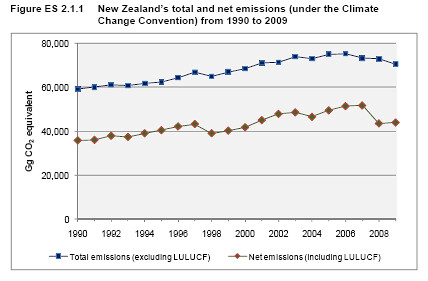So, if MediaWorks didn't need our money, how did they manage to walk off with $43 million of it? It boils down to one thing: fear.
In early October, despite advice from his department that assistance was unnecessary, Steven Joyce sought permission to take an urgent paper to Cabinet to gain approval to negotiate a "one-off" restructuring of broadcasting licence fee payments. The Cabinet paper gives the following justification in its executive summary:
The new option recognises a worsening of trading conditions in the recent economic recessions hat has reduced cash flow from advertising revenue. One of the major licensees (MediaWorks Ltd) has broken existing banking covenants, as the gearing by its offshore parent company Ironbridge Capital Ltd was arranged in better market conditions.
The first sentence had been thoroughly debunked by
Deloittes' financial modelling. As for the second, this is the first time it has been mentioned. It is not mentioned in any of the weekly briefings to the Minister. It is not mentioned in any of the other briefings. And its not mentioned anywhere in the main body of the Cabinet Paper itself. Instead, there's some other details about MediaWorks' problems:
Details of an interim restructure arrangement for MediaWorks by its parent company Ironbridge have been provided to MED officials. According to Ironbridge, one of the conditions of this arrangement is the banks' requirement that licence payments be spread over a five to six year period. Ironbridge states that MediaWorks cannot fund the payment over a shorter timeframe. Mediaworks is seeking a decision on the spreading of licence renewal payments before 31 October this year, as this is the date by which MediaWorks is required to present its longer term financial restructuring plan.
(Emphasis added)
But broadcasting licence payments in New Zealand are not normally spread over a five to six year period - they're an upfront lump sum for a tradable property right. MediaWorks apparently made its bankers a promise it couldn't keep. As for why its the government's problem, there's this bit on "risks":
If no action is taken, there is a risk that some RBA members will default on the payments...
MediaWorks operates both radio and television services. If it were to default on its current licence renewal obligations, or move to liquidation, there is potential of a wider destabilising effect in both sectors. The television business has a higher profile domestically and internationally, and there could possibly be some commentary on New Zealand's overall economic position.
In case that wasn't enough, the
one-page summary prepared for the Cabinet Economic Growth and Infrastructure Committee hyped the threat even more:
If no action is taken, there is a risk that some RBA members, including the two major networks (MediaWorks and The Radio Network), will default on payments. This has the potential for destabilising effects in the radio and television industries.
Finally, the
supplementary paper when it actually reached Cabinet on 19 October claimed that
at least one of the radio companies may have experienced a credit downgrade
Clearly, the entire New Zealand broadcasting industry was under threat, and the government had to Act Immediately to Save It!
But this is the first time that any of this has been mentioned. Its not mentioned in any of the earlier briefings. Its not mentioned in the weekly updates to the Minister. its not mentioned in any of the emails around seeking approval or drafting the Cabinet Paper. Reports of communications with MediaWorks show them as quite relaxed, facing a "non-critical" banking deadline on September 11 (when they would have to pay interest), but asking for a decision by October 31 to meet Ironbridge's restructuring deadline. There is no suggestion anywhere in this advice of a possible default, let alone of liquidation. But regardless of where it came from, it was persuasive; Cabinet rubberstamped the deal, and MediaWorks (or rather Ironbridge, because they're the major beneficiaries, with their extortionate dividend stream secured) laughed all the way to the bank.






